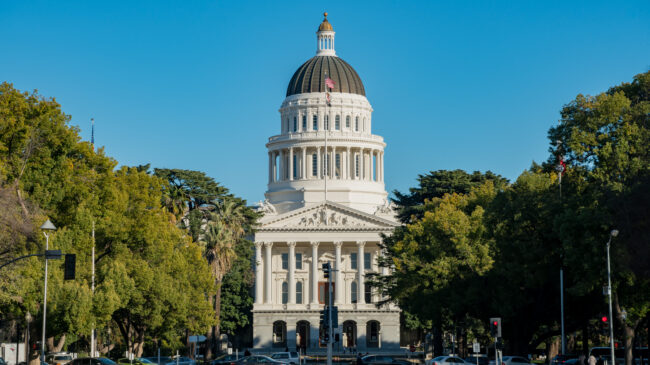This post is part of an ongoing series summarizing state-based psychedelic reforms intended for policy professional professionals.
There was a normal winnowing of many exciting legislative proposals in the first quarter of 2024 as momentum flattened and the restrictive status quo won the day. Psychedelic activists, however, continue to make progress throughout the country, despite pushback.
In California, state Sen. Scott Weiner’s (D-San Francisco) Senate Bill 1012 has failed to secure support from the Senate Finance Committee. The bill would have created a market of regulated, in-person psychedelic therapy with state-certified professionals, similar to what is already implemented in Oregon. His proposal was introduced as a response to Gov. Gavin Newsom’s previous veto of a bill last year to decriminalize some botanical psychedelics.
Weiner’s fellow legislators had reportedly demanded more restrictions to limit access to in-person, professionally guided experiences to require providers of psychedelic-assisted therapy to hold a valid California medical or therapy license.
We argue in an op-ed that these restrictions would substantially increase costs and compromise public safety by driving consumer demand into the illicit market.
In Maryland, state Sen. Brian Feldman’s (D-District 15) Senate Bill 1009 to create a working group to study psychedelic therapy progressed quickly through both legislative chambers. It was signed into law on May 16.
In Wisconsin, lawmakers introduced House Bill 753 to create a pilot program for medicinal psilocybin. In April, it failed.
In Illinois, state Sen. Rachel Ventura (D-District 43) introduced Senate Bill 3695 in February to establish a regulated botanical psychedelics market by 2027. It is similar to Oregon’s model of professionally facilitated psilocybin-assisted therapy. Notably, this bill includes ibogaine, a promising but controversial drug addiction treatment. It is currently working its way through the state Senate.
In Vermont, state Sen. Martine Gulick’s (D-Chittenden Central District) bill, Senate 114, to create an advisory group on psilocybin decriminalization, was sent to the governor’s desk on May 10.
In Alaska, state Rep. Jennie Armstrong’s (D-District 16) House Bill 228 was approved by the legislature and is awaiting the governor’s signature. If ratified, the legislature would create a task force to recommend regulatory changes should the U.S. Food and Drug Administration approve a psychedelic medicine.
In Maine, state Sen. Donna Bailey (D-District 14) introduced Senate Bill 1914 to create a regulated market. However, the bill was watered down through amendments to create a commission charged with studying and making recommendations about structuring a regulated market.
In Rhode Island, state Rep. Brandon Potter’s (D-District 16) bill, House Bill 7047, which would have temporarily removed penalties for possessing psilocybin until mid-2026, was given an unfavorable ruling by the House’s Judiciary Committee in February and is unlikely to pass this year.
In New York, Assemblywoman Amy Paulin (D-District 88) introduced AB 10375 to allow adult cultivation and sharing of psilocybin once a consumer obtains a permit. A permit requires a health screening and educational courses.
Massachusetts gears up for ballot initiative qualification
A Massachusetts ballot initiative to legalize the non-commercial sharing of botanical psychedelics and create a regulated framework similar to Colorado’s proposition 122 is making steady progress towards qualifying for this November’s ballot. And, just like in Colorado, many political and public health institutions are lining up to oppose it.
One group, reportedly associated with Massachusetts General Hospital, has filed paperwork to oppose the measure because of a provision that allows homegrown psilocybin. Additionally, a joint committee from the legislature has released a report arguing that personal possession would undermine a state-regulated therapy program.
Reason Foundation has responded with a commentary arguing that the ballot initiative would not be a threat to public health and would provide access to potentially life-changing psychedelics.
Colorado considers restrictions on drug-related speech
In Colorado, Senate Bill 158 stalled in the House’s Committee on Education in May. The bill was ostensibly designed to protect minors on social media platforms. Social media companies would have to collect sensitive information to verify a minor’s age and retain this information so that their security processes could be audited. It also would have imposed new requirements on social media companies to ban any user accounts that advertised illicit activities, such as drug use and unlawful firearm sales.
Reason Foundation published an opinion piece detailing how the bill, among other issues, would restrict personal and corporate speech related to products that are fully legal under state law, including psychedelics.
Sponsors appear poised for a renewed push in the next session.
